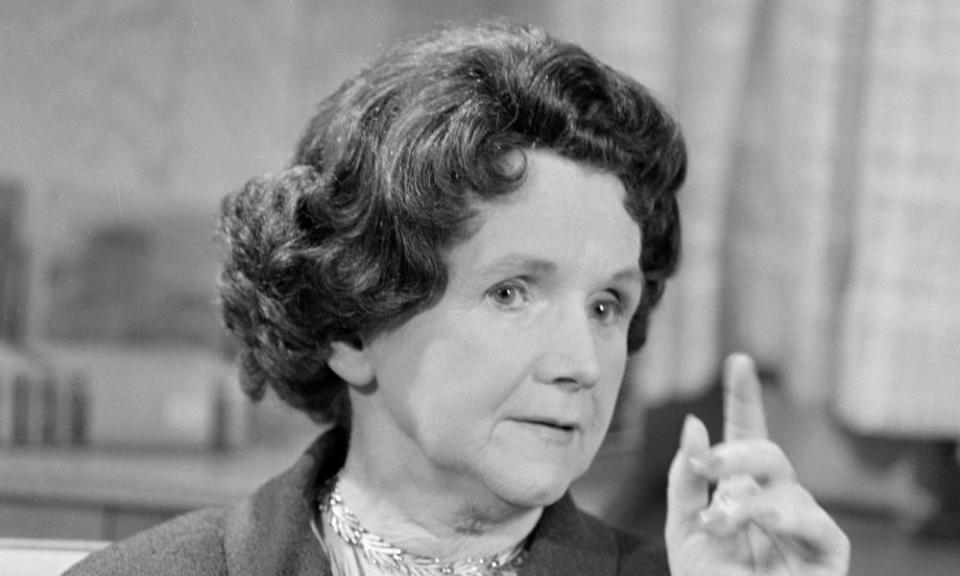What the world can learn from Rachel Carson as we fight for our planet

“Glasgow is our last chance” has become a climate crisis mantra.
World leaders scheduled to meet soon at the United Nations Cop26 climate summit in Glasgow to discuss – and act upon – our global climate crisis face a huge task, as do those here in the US as they fine-tune the climate measures in the Biden administration’s Build Back Better plan. All political measures up to now have been insufficient. The latest UN report on climate change issued a “code red for humanity”. And it’s only going to get worse and probably irreversible – larger fires, extended droughts, more intense storms, and more environmental refugees, destabilized regimes and unlivable parts of our planet – if our carbon-based economy continues unabated.
The job is massive yet clear: blueprint humanity’s rapid path into a better, clean-energy world by ending our addiction to fossil fuels.
For inspiration, Winston Churchill might come to mind. How he rallied his people to resist Nazi Germany when Hitler seemed unstoppable. Or Nelson Mandela, who fought to end apartheid, spent 27 years in prison, and wrote: “It always seems impossible until it’s done.” Or Martin Luther King Jr, who wrote from a Birmingham jail: “Injustice anywhere is a threat to justice everywhere. We are caught in an inescapable network of mutuality, tied in a single garment of destiny.”
But I suggest Rachel Carson.
Sixty years ago, while sick with cancer and often in pain, she struggled to finish a book nobody else had the courage to write, a book she hoped would make an important difference. “Knowing what I do,” she wrote to a friend, “there would be no future peace for me if I kept silent … I wish you could feel, as I do, that it is, in the deepest sense, a privilege as well as a duty to have the opportunity to speak out – to many thousands of people – on something so important.”
Already a bestselling author and professional scientist, Carson had closely monitored the controversial spraying of synthetic pesticides in southern states to eradicate fire ants and crop-killing insects. Immediately, songbirds perished by the thousands. Livestock, poultry and dogs dropped dead. A similar thing happened on New York’s Long Island. “The more I learned” Carson wrote, “the more appalled I became.”
She approached magazines about a feature article. None expressed interest. Reader’s Digest planned to run an article in favor of pesticides. Carson then asked EB White, the popular author of Stuart Little and Charlotte’s Web, if he would tackle the issue. He said no, and encouraged Carson to write a book.
Which she did, alone, knowing full well she would incur the wrath of the major chemical companies that produced the new pesticides, and of government officials who had approved of their large-scale use. After Houghton Mifflin signed her to a book deal, Carson wrote to William Shawn, the editor of the New Yorker, to ask if he would excerpt her early chapters. She began her letter with a quote from Albert Schweitzer: “Modern man no longer knows how to foresee or forestall. He will end by destroying the earth from which he and other living creatures draw their food.”
A diligent investigator, she worked on the book for years, all while fighting cancer.
Excerpted and published in 1962, Silent Spring became an instant lightning rod. One reviewer called it “propaganda written in white hot anger”. A lawyer for a large chemical company said Carson was a front for the Communist party. The president of another chemical company, one that produced DDT, said Carson wrote “not as a scientist, but as a fanatic defender of the cult of the balance of nature”.
Silent Spring also became an instant classic, selling more than 100,000 hardcover copies in its first three months and topping one million in two years. The supreme court justice William O Douglas compared it to Uncle Tom’s Cabin. The anthropologist Loren Eiseley praised Carson and called her book “a devastating, heavily documented, relentless attack upon human carelessness, greed, and irresponsibility”.
When reporters asked President Kennedy if the government would look more closely at approving synthetic pesticides, he responded: “Yes, and I know they already are. I think particularly, of course, since Miss Carson’s book.”
In her soft voice and easy manner, Carson spoke on television and said that while many modern scientists believed man can and should steadily control nature, we must be careful because “man is part of nature, and his war against nature is inevitably a war against himself … and I think we’re challenged as mankind has never been challenged before to prove our maturity and our mastery, not of nature, but of ourselves”.
Within 10 years of the publication of Silent Spring, the US had an Earth Day and the Clean Air Act. Soon thereafter came the Clean Water Act and Endangered Species Act. Carson lived to see none of them. She died of cancer in 1964, at age 56.
Leaders here at home, take note. The science is conclusive. It’s time to pass a no-nonsense Build Back Better Plan that will cut the emissions that feed climate disasters – and take that accomplishment to Glasgow at the end of this month.
It’s time to praise peaceful citizen action, from every fossil fuel divestment to every indigenous-led pipeline protest. It’s time to embrace new green technology, end off-shore drilling and all harmful energy leases on US public lands, keep the oil, coal and methane in the ground, and work together to see our moment in history as Carson saw hers – as a privilege and a duty.
A frequent contributor to the Guardian, Kim Heacox is the author of many books, including The Only Kayak, a memoir, and Jimmy Bluefeather, a novel, both winners of the National Outdoor Book Award. He lives in Alaska

 Yahoo Finance
Yahoo Finance 